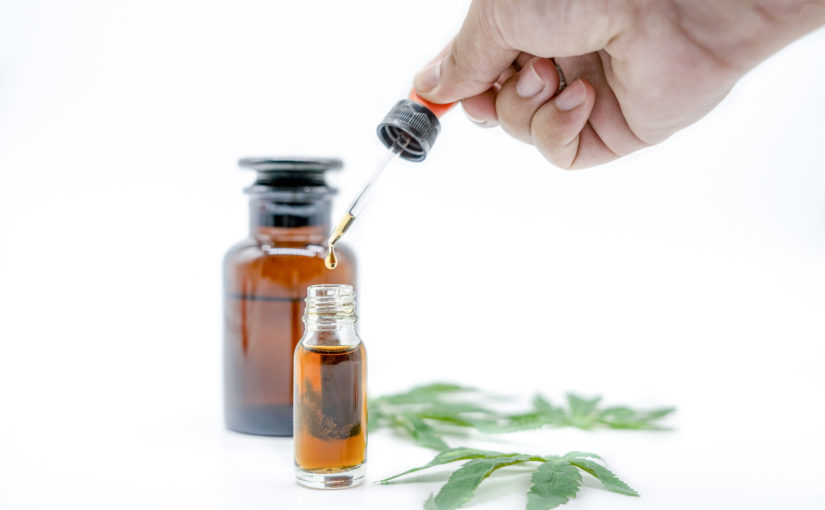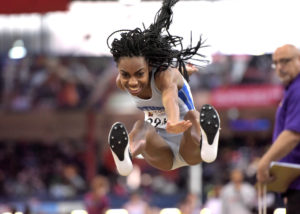Oct 30, 2020Growing Pains: CBD Use by Athletes Slow Despite Mainstream Popularity
Recovery and pain management is a high profile concern for athletes at every level of their game. After a contest or hard workout, they need a way to bounce back from what ails them. Aside from the oft-taken paths pharmaceutical companies offer, there are less-traveled routes of natural remedies that are being looked at.
The use of CBD, or the non-psychoactive compound derived from the cannabis plant, has exploded in popularity over the past decade. Many athletes from around the sports world, especially professional athletes, have been singing the praises of CBD for the past few years, claiming it is a safe and natural alternative to opioid-based pain relief.
While the mainstream is certainly becoming more and more receptive and tolerant of hemp-based products, both psychoactive and not, there is still a cloud of gray area that athletes have to navigate. Knowing that CBD isn’t going anywhere any time soon, researchers are actively seeking to better understand the ways CBD can positively impact those who use it.
 Though banned by nearly every governing athletic body in the country, marijuana is now fully legal in 11 states across the country and has been decriminalized in 29 others. Just eight states in the United States still consider marijuana completely illegal.
Though banned by nearly every governing athletic body in the country, marijuana is now fully legal in 11 states across the country and has been decriminalized in 29 others. Just eight states in the United States still consider marijuana completely illegal.
For a lot of athletes, one of the biggest hurdles to clear is the stigma associated with the use of cannabinoids. The association with marijuana, which is also harvested from the hemp plant, can scare athletes away from trying the non-psychoactive benefits of the plant. Also, there is little rock-solid evidence that supports the benefits of CBD products.
The positive effects have ranged from inflammatory relief, soothing digestive discomfort, reducing stress, and increased quality of sleep — all of which could be big benefits to athletes in the recovery process, particularly those partaking in collision and high-contact sports. Anecdotal evidence abounds in support of their benefits, but the powers that be in the pharmaceutical world have not taken a stand in favor of their use.
Athletic governing bodies have begun to come around on the use of CBD, though. Starting in January of 2018, the World Anti-Doping Agency added CBD to the list of substances that are no longer banned, in or out of competition. THC, the psychoactive component of marijuana, is still prohibited, and so are synthetic cannabinoids.
The selling and marketing of CBD products also became legal in the United States in 2018. A revision to the United States Farm Bill that year allowed for the production and sale of industrial hemp products throughout the United States, including hemp-derived CBD products.
The Food and Drug Administration monitors and regulates CBD products that make therapeutic claims. It released a statement in late 2019 that said it “recognizes the significant public interest in cannabis and cannabis-derived compounds, particularly CBD. However, there are many unanswered questions about the science, safety, and quality of products containing CBD.”
The NCAA does not specifically ban CBD use in its 2020-21 guidelines by name but does outlaw marijuana and synthetic versions. Todd Wetmore, the Sports Information Director for Liberty University, said that the athletic training staff at the Division 1 school oversees the supplement intake of its athletes.
“Our athletes know that they need to check with the training staff about anything that they take,” Wetmore said.

In the pros, the legality of both CBD and marijuana varies but is trending more and more towards tolerance of both. The National Hockey League has long been the most progressive in the area, without penalties in place for use of either CBD or marijuana. Major League Baseball became the second major North American sports league to legalize the use of both by its players, with penalties in place for those that are impaired on the job or are caught breaking the law in their communities.
The National Football League is undergoing fact-finding tasks as it prepares for an upcoming collective bargaining agreement in which it is expected that CBD, and perhaps marijuana, use will be cleared as forms of pain management for players. The NBA randomly drug tests players four times per year. Suspensions do not occur until a third positive test in a calendar year, but the NBA Players Union is fighting to legalize use for its players.
As for high school athletics, the regulations regarding the use of CBD products vary from state. While nearly all states clearly ban the use of marijuana for their high school athletic competitors, the legality of CBD products is rarely specifically mentioned. Athletes should consult their individual athletic departments, and or state governing bodies, to determine whether or not they can legally use such supplements.
» ALSO SEE: Strength Coach Roundtable Discussion
The monitoring of the use of CBD-based products at the high school level is difficult for governing bodies as most high school athletes across the United States are not required to submit drug tests for participation. However, there may be monitoring done by the high school or individual program, depending on the school and state.
Athletes at every level may be able to benefit from the use of CBD as they strive to become more healthy, in a more natural way. Making sure that this avenue is legal inside their sport seems to be a case by case basis, and something that must be monitored to avoid breaking rules.



